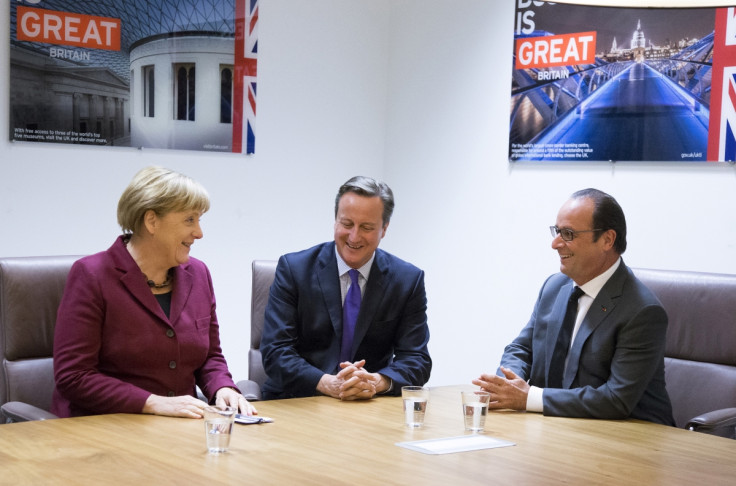EU Referendum: Cameron offered compromise by Merkel and Hollande over migrant benefits

British Prime Minister David Cameron has been handed a compromise on his welfare reform proposal to ban EU migrants from claiming benefits in the UK for four years. French President Francois Hollande and German Chancellor Angela Merkel have reportedly tabled a counter-offer of three years.
The proposal from his European counterparts gives Cameron the ability to claim that his renegotiation efforts have predominantly been a success ahead of the referendum on the UK's membership of the EU, due to be held before 2017. The boost comes as Cameron's original four-year objective was overwhelmingly rebuffed by the bloc's leaders, who said that the plan would endanger the principle of freedom of movement.
Banning migrants from claiming in-work benefits for four years has been a key pillar of Cameron's renegotiation plan, and eurosceptics will argue that the prime minister failed in securing his key objective. But Cameron has said that he is open to "alternative solutions" on the contentious welfare plan.
"British officials are open to compromises and alternatives, and David Cameron got the impression last week that several heads of state and government were ready for compromise as well," a French official with knowledge of the matter told Politico Europe. "The British officials want to prove that a compromise or an alternative would lead to more or less the same results," the official added.
The moves by the French and German leaders to keep Britain in the EU may not require the unanimous support of all Member States if the deal is struck within the confines of existing treaties. "There was a coordination between Hollande and Merkel to launch the idea of discussing possible compromises on this issue, ideally compatible with the [EU] treaties," the official said.
Number 10 could argue that the counter-offer by the French and German leaders will cut net migration to approximate levels to four years.
© Copyright IBTimes 2025. All rights reserved.






















